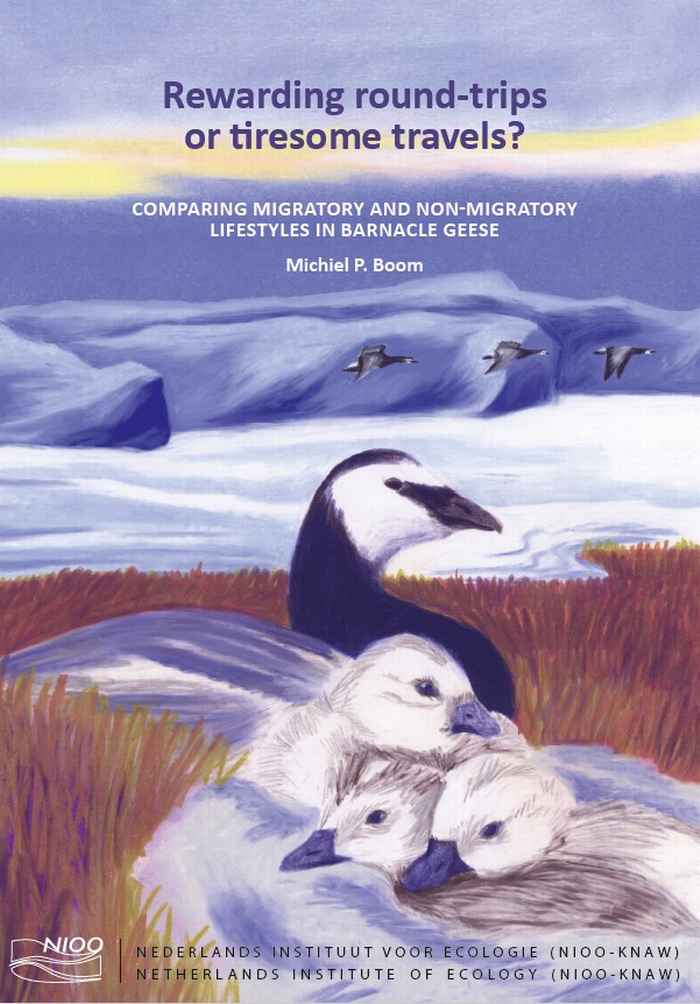PhD defence ceremony Chiel Boom
- Date
- 14 October 2022
- Time
- 13:00
- Location
- Agnietenkapel

Rewarding round-trips or tiresome travels? Comparing migratory and non-migratory lifestyles in barnacle geese
Migration allows animals to exploit seasonally changing environmental conditions in different areas throughout the year, but migration is only adaptive when the benefits outweigh the costs. Because environmental conditions are changing over the years, the cost-benefit balance of migration might change as well. In this thesis, I made use of the recent establishment in the temperate zone of a resident population of barnacle geese, a species that traditionally breeds in the Arctic. By comparing the resident and migratory populations, the costs and benefits of migration in barnacle geese can be investigated. We studied differences on the breeding grounds (e.g. reproduction and moult) as well as the behavioural adaptations associated with a migratory life. We show that, in the Arctic, breeding success (nest initiation, hatching success, gosling growth) is closely associated with spring phenology, while in the temperate region spring phenology is less important. Furthermore, we demonstrate that a migratory life imposes additional time constraints, but these are partly lifted by the longer day lengths encountered by geese that migrate to the Arctic, allowing them to increase foraging activity and accelerate growth. We conclude that currently, both a migratory and resident strategy is viable for barnacle geese, and that human-induced environmental change likely facilitated the establishment of the resident barnacle goose populations. With human activity continuing to affect environmental conditions, the cost-benefit balance of migration in barnacle geese and other migratory species will change as well, ultimately determining the future occurrence of migration as a life-history strategy.
